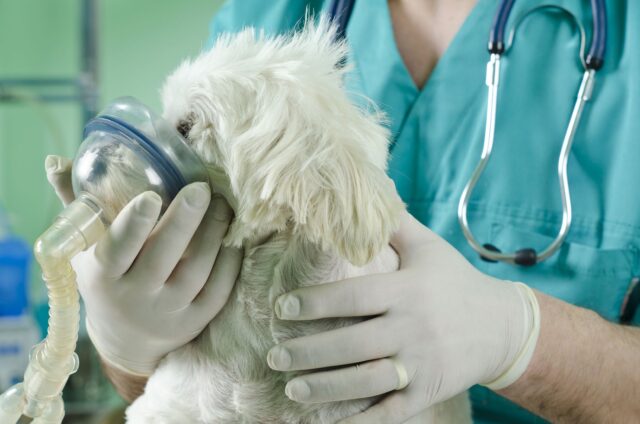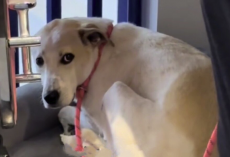One of the basic needs that dogs need to have provided for them is dog health care. Even in the broadest of terms, dog health care is important. May it be several check-ups with your dog’s vet or just proper treatment at home – it’s important.
According to the American Association of Animal Hospitals, “Annual or biannual exams nip emerging health problems in the bud and are key to extending your pet’s time by your side.” However, a visit from the vet once or twice a year isn’t enough, and since your dog cannot say how they’re feeling, it’s your duty as a dog parent to be able to detect subtle signs that your pet is unwell before it could lead to anything far worse than you expect. After all, keeping your dog healthy should be at the top of your priority list as a responsible dog parent.
We are aware that the thought of keeping all of this in mind is quite overwhelming. Especially when you don’t know where to start, that is why we have put together a list of 5 tell-tale symptoms that indicate that your dog could be unwell:
[These symptoms could be indicators of your dog feeling unwell, but it does not necessarily mean it’s already a severe case. Make sure to observe and be cautious, try not to panic.]
Change in Behavior
When dogs are in pain or don’t feel well, they tend to display behavioral changes. Usually, these personality changes occur suddenly. You should look out for:
- Lethargy
- Irritability
- Agitation
- Withdrawal
- Needy or clingy behavior
Another thing to note is that not all dogs will display negative behavior when they are ill, but it’s better to be aware of these just in case.
Loss of Appetite

Loss of Appetite is an indicator of various underlying conditions such as a viral infection or an upset stomach, or even depression. However, when it’s accompanied by inactivity, observe your pet’s behavior as it can be associated with more serious illnesses that should be addressed by the veterinarian.
It’s important to remember that loss of appetite is not normal for dogs, and you must immediately schedule an appointment with the veterinarian if it persists for 2 or 3 days.
Potty Problems

One of the most common signs that a dog isn’t well is when they lose control of their bowels or their bladder, most especially if they are potty trained. Dogs who are properly house-trained generally won’t suddenly start urinating or defecating around the home without a good reason.
Diarrhea in dogs can be triggered by common dog diseases and health problems like stress from traveling, worms, or even diet changes. However, it can also be an indicator of something grave like a bacterial and viral infection, organ dysfunction, and other illnesses.
Be mindful of the following changes in your dog’s bathroom habits:
- Trouble passing urine
- Trouble defecating
- Increased volume or frequency of urine
- Urinary accidents in a previously housetrained dog
- Fecal accidents in a previously housetrained dog
If it’s been days or if it’s accompanied by other symptoms like vomiting, lethargy, and blood. Remember to bring a stool/pee sample or take a photo of it and immediately go to the vet, so that the doctor can test your dog and the samples before determining the cause.
These changes are especially important to note in older dogs. Excessive amounts of urination may indicate an issue with the kidneys. Bloody urine and loose stools may also indicate a serious health issue. A single occurrence of diarrhea doesn’t mean you need to run to the vet, however when diarrhea occurs multiple times in a 24-hour period, there is cause for concern.
Noticeable Physical Pain

It’s important to pay attention to your dog if they start to growl when you get close to a particular area of the body, it could be that they are protective of that area because it is in pain. A dog may yelp in pain when you go to touch her injured paw or sore back, but it’s even more likely that she will suffer in silence. Not all dogs are very vocal about their pain, so that adds another layer of complexity since they already can verbalize that they are not okay.
Here are some signs that your dog may be hurting:
- Obvious bone or joint swelling that is warm to the touch
- Trouble chewing, drooling
- Lameness or stiffness that lasts more than 24 hours
- Reluctance to move, jump or walk
- Agitation
- Guarding a body part by growling when you approached
Never give pain medicine unless it was specifically prescribed for your dog. This includes over-the-counter human pain killers, which can be very toxic to dogs. It is best to observe them and try to aid them while walking or put their food and water bowls near them to lessen their walking.
If symptoms persist, it’s best to book an appointment with your vet.
Respiratory Problems

Much like in humans, respiratory problems can also occur in dogs. However, this symptom is a bit tricky as it can come at any stage in an animal’s life. Since organs do not develop in the early stages, they can manifest much later on. The most common symptoms to watch out for are:
- A honking cough
- Wheezing or noisy breathing
- Persistent cough that disrupts sleep or lasts more than 24 hours
- Persistent nasal discharge, especially with mucus or blood
- Persistent gagging
- Labored breathing
If your dog is struggling to breathe, check the color of the gums and tongue. They should be pink. If you notice a bluish tint, seek emergency care immediately.
For colds and flu, your pet would most likely have to take antibiotics and increase fluid intake. For more serious illnesses like pneumonia, lung tumor, and chronic obstructive pulmonary disease (COPD), your pet would require more attention from the veterinarian. Although immunity is not 100% guaranteed, it’s important to vaccinate your pets regularly to prevent these illnesses.
These are just five (5) common signs that will help you. At the end of the day, being fully prepared is impossible. Even if you’ve researched everything and have stocked up on medicine and ointments, there will be things that’ll happen to your dog that you’re not fully ready for – and that’s okay. The important thing is you’re equipped with enough knowledge to determine the signs that concern your dog’s health. Regardless of your dog’s age, you play a key role in helping her combat illness and remain as healthy as possible.
If you’re unsure and have further queries, contact your veterinarian — your best resource for information about your dog’s health and well-being.











